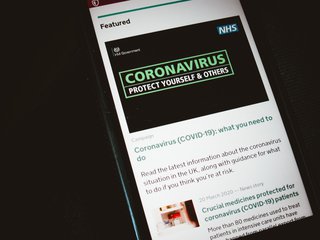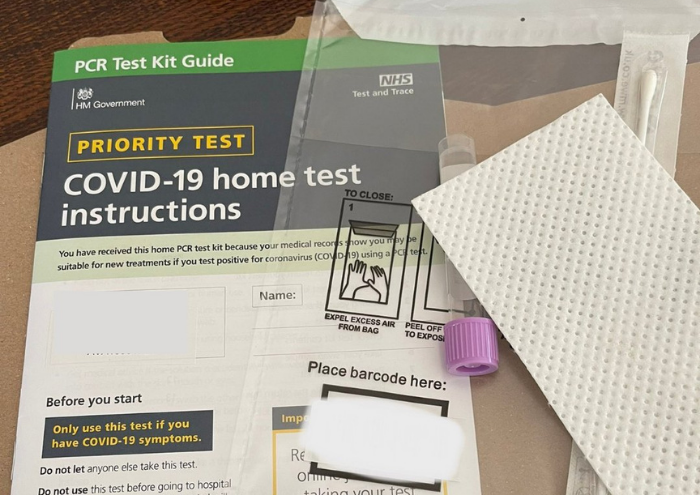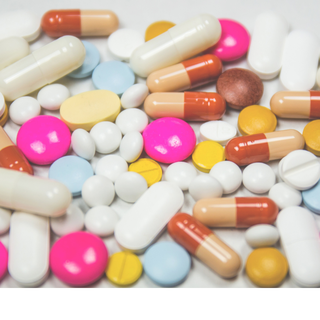How our blood cancer and Covid survey has led to change
We’re writing this to update you on what our recent survey on blood cancer and Covid found, what has happened since, and the impact your responses made.
In January, we asked you to fill in a survey about Covid. We want to thank the nearly 4,000 of you who did so – we’re writing this to update you on what it found and what has happened since.
Firstly, it showed that lots of people with blood cancer had not yet had a letter telling them that they are eligible to be assessed for new treatments if they are diagnosed with Covid.
This is a serious problem because while people should still be eligible for assessment even without a letter, if they do not know they’re eligible, then they may be less likely to be able to access the treatments.
Some people with blood cancer weren't being told how to access Covid treatments
What we knew prior to the survey
Even before the survey, we had had calls from people who told us that they had been expecting a letter but had not received one, and it seemed like a high proportion of these calls were from people with chronic lymphocytic leukaemia (CLL).
Why were people with CLL being impacted most?
But we could not be sure if the high proportion of people with CLL was down to chance, or if it reflected a problem with people with CLL not getting the letters.
The results of the survey made it very clear that it was a real problem, at least in England. Everyone with CLL should have got the letter saying they were eligible for assessment, but they were significantly overrepresented in the survey respondents who said they had not received a letter.
What did we do next?
We shared these results with NHS Digital, the body responsible for identifying eligible people, along with the details of some of the people who called our support line and gave us permission to share their details.
As a result, NHS Digital looked again, and realised they had made an error in their coding that had resulted in thousands of people with CLL being inadvertently excluded, and so they did not receive a letter.
Helping to rectify the issue
We’re delighted that these people have now been sent the letters, which will mean that some people with CLL who were not previously aware of the treatments will now know about them and will be more likely to access them.
This means it’s likely that our work on this has saved lives – we want to say a massive thank you to everyone who completed our survey and for helping make this happen, and to NHS Digital for being willing to investigate what had gone wrong.
But this is not the end of the story...
While not all people with blood cancer are eligible to be assessed for the treatments, it seems that some other people have not had letters who should have. We’re continuing to work with NHS Digital to try to get to the bottom of this – to make sure that everyone who is eligible for assessment gets a letter.
For anyone who has still not received a letter but fits the eligibility criteria we outline on our website, our recommendation is that you still contact your hospital team or GP as soon as possible.
Important update on Covid treatments for people with blood cancer
As of 10 February 2022, you no longer need a PCR test to get access to the new Covid treatments – you only need a positive lateral flow test and a telephone assessment. As outlined in our guidance, this is the process in England, Scotland, Wales and Northern Ireland.
What else did our survey tell us?
Issues accessing the fourth Covid vaccine dose
The survey also helped us to understand what has been happening with booster doses for the immunosuppressed (people with blood cancer should have a fourth dose 12 weeks after their third dose).
The NHS does not publish data on this, but we had had many fewer calls to our support line about boosters (fourth dose) than we had about the poorly managed third dose roll-out, and so we had assumed it must be going well.
But the survey showed that just a quarter of respondents with blood cancer had had a fourth dose by the time of the survey.
This seems to be for two reasons – the poor roll-out of third doses had pushed back the timings for fourth doses, and some people with blood cancer had either been unaware of them or had struggled to access them.
We shared these findings with NHS England and following this – we don’t know if this was prompted by this new information or the timing was a coincidence – NHS England has written to immunosuppressed people to tell them they should be getting a booster (fourth dose).
We hope these two things significantly increase the proportion of people with blood cancer who have the maximum possible protection against Covid.
Update on accessing the fifth Covid vaccine dose (second booster)
The Government has announced that people over 75 and people aged 12 or over who are immunosuppressed will be offered a fifth dose of the Covid vaccine from the spring of 2022.
The Government hasn't yet provided details of how the fifth dose will be rolled out, but we will update our website when we learn more.
Of course, neither of these problems are completely solved
The Government and the NHS needs to do more to make sure every person with blood cancer gets four doses of the vaccine and is told if they are eligible to be assessed for the new treatments if they develop Covid.
But our survey shows that collecting the experience of people with blood cancer and using these to show where improvement is needed can be lifesaving work.
Concerns about working during Covid
There are also areas highlighted by the survey where we have not yet made progress. The survey showed that about half of workers with blood cancer are working from home. Of those who have to go into their workplaces, two thirds are worried about Covid.
We worry that the situation may get worse with the Government's 'Living with Covid' plan, whereby people in England are no longer required to wear masks or self isolate – even if they test positive for Covid. In light of this, we have some practical information to help you look after yourself, get support and make decisions based on your level of risk.
This means that workers with blood cancer who work in places like cafes and restaurants will unnecessarily be exposed to those with the virus. We want the Government to support people who cannot work from home while the infection rate is high, but so far, there is no sign that the Government is planning to do this.
So we will keep campaigning for better support for people affected by blood cancer during the pandemic, and will keep making sure that people affected by blood cancer are at the heart of this work.
If you're worried about or have questions about blood cancer, the impact of coronavirus, or would like to talk through how you're feeling, please don't hesitate to contact our free and confidential Support Services Team.

Help us support our community during Covid
We are only able to keep giving vital information and support on Covid, and campaigning for real change, thanks to your donations.



